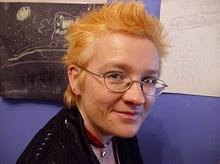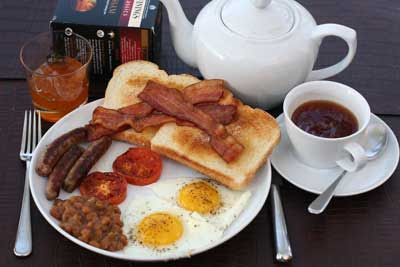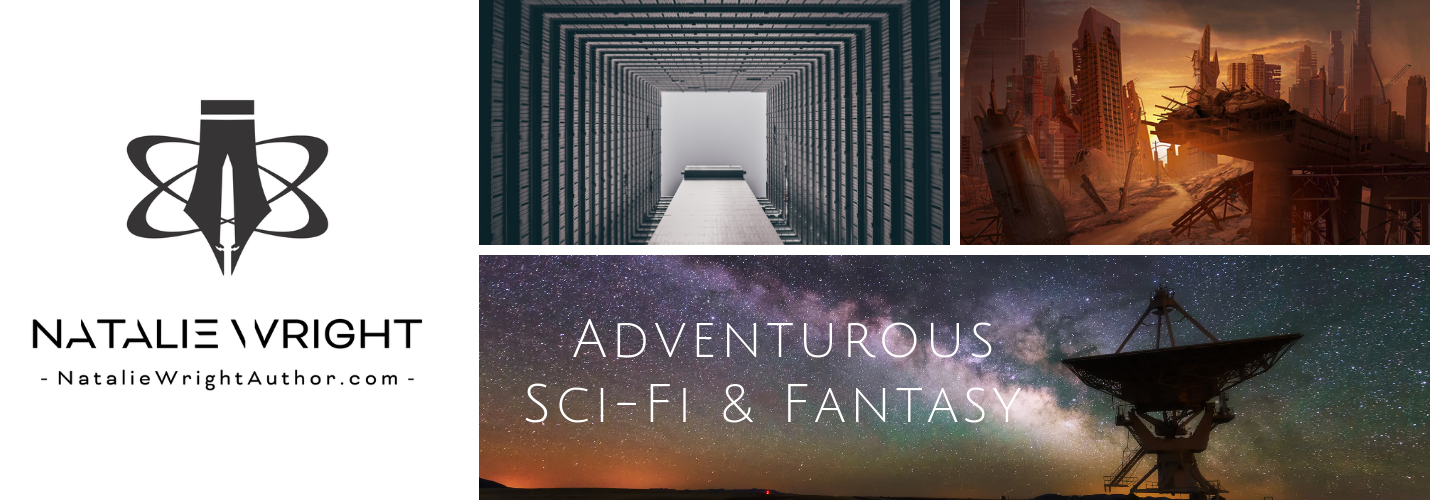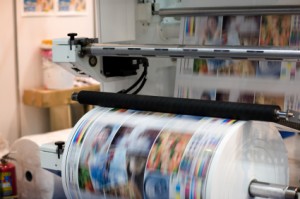 |
| Pippa Jay, author of Keir |
Every now and again, I read a book that is so intriguing - so unique - I just have to get to know the author a little better. I recently read Keir (my review coming this Friday), and when finished immediately contacted Pippa Jay, the author, to request an interview. To my delight, she said "yes." For those of you have not yet "met" Pippa Jay, I'm excited to bring this newish author to you:
Natalie Wright (NW): Keir is your most recently released novel – and I loved it! What was your inspiration for Keir?
 Pippa Jay (PJ): Aww, thank you! It might sounds a bit corny, but the opening scene and idea for the book came from a dream. When I woke up with that image - a man crouched in the dark, beaten and broken - I instantly had a name for him, and I wanted to know how he’d gotten into that state because it seemed more like a tragic ending than a beginning. I think his appearance was inspired by a couple of characters from X-Men and from reading Stephen Lawhead’s Merlin as a teenager.
Pippa Jay (PJ): Aww, thank you! It might sounds a bit corny, but the opening scene and idea for the book came from a dream. When I woke up with that image - a man crouched in the dark, beaten and broken - I instantly had a name for him, and I wanted to know how he’d gotten into that state because it seemed more like a tragic ending than a beginning. I think his appearance was inspired by a couple of characters from X-Men and from reading Stephen Lawhead’s Merlin as a teenager.
NW: The male lead character, Keir, was born blue. And then he got tattooed all over, not of his choice. So he is sort of strange looking, maybe even what some might consider ugly. Did you see this story as a beauty and the beast sort of story?
PJ: Do you know, I’d never even thought about it like that? But you’re right, it is that kind of story. Keir is very much based on the idea that only certain ‘types’ of human beings are considered beautiful, and that anyone outside those often unrealistic stereotypes is ‘ugly’. There’s an increasingly unhealthy obsession with attaining a media-hyped, photo-shopped ideal of the perfect body, and too often we judge by appearances. But beauty is only skin deep. While Keir’s society might have rejected him as a monster, Quin can see beyond that. In her eyes, he’s beautiful.
NW: Okay, the chapters where Keir and Quin are stranded on the deserted island together – HOT, HOT, HOT! I mean, this is what the movie Blue Lagoon could have been, if the people were grown up – and hot! And their intimacy, I love the way they come together not just in a physical way, but you added the dimension that they can read each other’s thoughts. So they’re actually feeling what the other feels. *Wipes the sweat beading on her forehead.* What I want to know, is did you have a real life inspiration for these wonderful scenes? Or is it your vivid imagination?
PJ: Thank you. Well, that’s a tricky one. I’d say a combination of both, although I’m not going to talk about some of the real life inspirations. *blushes* One of my favourite ways to spend the weekend is on a local beach, which is the main inspiration for the island of Kasha-Asor. But I’ve always had an obsession with psychic abilities, so most of my characters have been telepathic at least. Being in someone else’s head and knowing how they feel - and how you’re making them feel so much more intimately - would be an amazing experience. It makes it more complicated to write, but I think it’s worth it.
NW: And I have to know, is there a sequel in the works to Keir?
PJ: Yes, there is a sequel.
NW: YAY! *sigh of relief* I got attached to Keir and Quin, so relieved that you said yes!
PJ: I’m editing it at the moment, but real life stuff keeps interfering! I very much want it to live up to any expectations that readers may have after Keir.
NW: I understand that problem completely! Do you have any news to share about your work?
PJ: My publisher recently announced that Keir will be coming out in print format in October, one of two titles fronting the return of Lyrical’s paperbacks. You can already pre-order it from Barnes & Noble. I’m so excited!
NW: That is exciting news. Congrats! For those of us that would like to check out more of your work while we wait for a sequel to Keir, what other books/stories have you published/ had published so far?
PJ: I have a scifi short story that I self-published through Smashwords - The Bones of the Sea - which is a free download. (*Click the link to go to Smashwords to download The Bones of the Sea for free.)
NW: What is your favorite scene from Keir and why?
PJ: Hmmm, that’s really, really hard. There are several I love, usually for different reasons. I think maybe the scene in the village where Quin sees Keir properly for the first time, and he comes to realize that she isn’t like everyone else he’s known. That she doesn’t care what he looks like and that she might actually be someone he can trust. That’s an important moment for them both.
NW: What genre do you write in?
PJ: Speculative fiction but predominantly scifi and generally romance.
NW: What works in progress do you have?
PJ: Aside from working on the sequel, I’ve a YA scifi novella out on submission at the moment, and another scifi romance novel currently entered into a contest. The last needs more work before I can submit it to publishers, but that’s my planned project for September. I signed up to do the August Campnanowrimo (my first ever nano, and with my three kids home for the summer - what was I thinking?!) with an outline for a steampunk superhero romance. A bit off the wall for me, but I like a challenge.
NW: Steampunk superhero romance?! Love it! Can't wait to see that as I'm a tad bit obsessed with steampunk.
Which character from your books do you like most / are most like?
PJ: Urgh, I HATE choosing favourites! I suppose, to answer both parts of that questions, I’d have to say Quin. Although she’s been through some terrible things, she hasn’t let it poison her and she still has a good heart and a lot of inner strength. A lot of her character and appearance is based on my teenage self. Although all my characters have some aspect of myself in them.
NW: If you walked through a portal to a dimension without books, what three books do you want to take with you?
PJ: Only three?! Could I not leave food and clothes behind and take more? *sigh* All right. Two of these aren’t even available yet but - Queen of Nowhere by Jaine Fenn, Twisted Metal by Liana Brooks (I had the opportunity to beta read that one), and The Crystal Singer Trilogy by Anne McCaffrey
NW: Who is your favorite author and why?
PJ: Again, only one? Jaine Fenn. She writes a mixture of tech and psi talents in her scifi books, which I love, and I aspire to do it as well as she does.
NW: How long have you been a writer?
PJ: For as long as I can remember. But I’ve only spent the last couple of years actively writing to be published.
NW: Do you have a “day job”? And if you do, what do you do when you’re not writing?
PJ: I used to be an Analytical Chemist but gave that up to be a stay-at-home mum once my first baby arrived. Now my youngest is set to start full-time school in September, so I get to make writing the day job. For now, at least.
NW: What is your favorite part of the writing process?
PJ: Finishing the first draft. I don’t plot, so reaching the end means I have all the essentials and key scenes down and in place. Until then, I don’t know where the story is going and what will need more work.
NW: Describe your perfect Saturday.
 |
| Here you go Pippa, one Full English breakfast. |
PJ: A lie-in (never happens). A full English breakfast. Some quality family time, maybe at the beach or on a walk, without anyone squabbling. Sneaking in some writing time without getting that ‘should you be on the computer?’ look from my husband. A quiet evening with said husband. Again, that rarely happens. By the time we get the kids to bed, we’re about ready to head that way ourselves.
NW: What is your favorite movie – the one you can watch over and over again?
PJ: *eyes Natalie* Just one? You make this so hard. I have four or five I watch repeatedly, but if it has to be one… A Knight’s Tale. Probably because Sir Ulric inspired some of Keir’s character in terms of personality.
NW: What is your favorite band or musical performer?
PJ: Oh, easy - The Rasmus. Love, love, LOVE their music and the lead singer’s voice. That’s a real inspiration to me. They even made the acknowledgements page in Keir for it.
NW: What do you hope readers will take with them from your writing?
That they will be thinking about the characters afterwards, and remember that beauty isn’t all about good looks. That society is too quick to judge and condemn simply on someone’s appearance. That life is precious and should be enjoyed, with no opportunity wasted.
NW: Let’s Get Silly Questions:
NW: Vanilla or Chocolate?
PJ: Chocolate
NW: Mountains or Beach?
PJ: Both
NW: Double bacon cheeseburger or gluten-free, dairy-free vegan lentil burger?
PJ: Double bacon cheeseburger
NW: What three words would you use to describe yourself?
PJ: Stubborn, loyal, quirky
Thank you, Pippa Jay, for stopping by my blog and chatting.
I highly recommend Keir - check it out:
Buy links:
KEIR
















